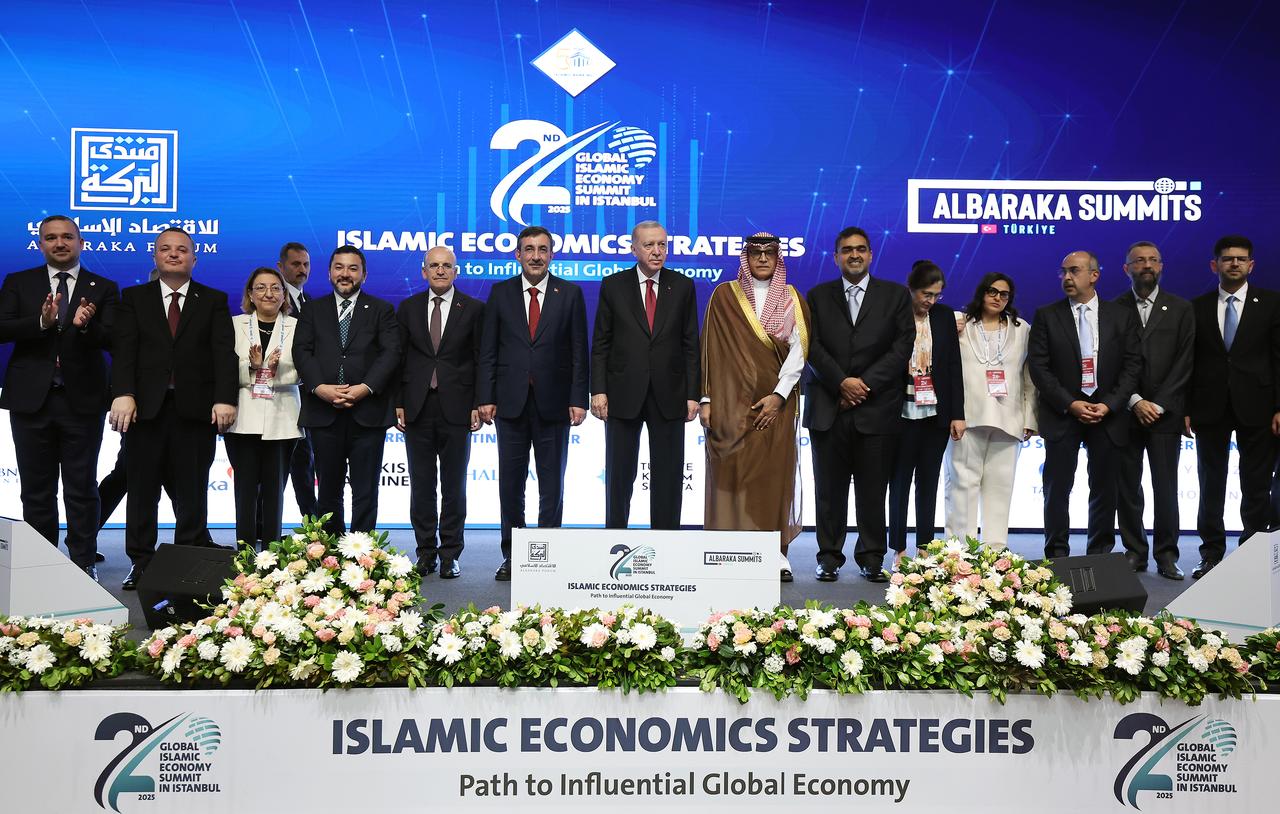
The second Global Islamic Economy Summit convened on Friday in Istanbul, bringing together senior officials, economists, and financial leaders to address the expanding role of Islamic finance in building a more ethical and inclusive global economy.
Organized under the theme “Islamic Economics Strategies: Path to Influential Global Economy,” the high-level gathering took place at the Istanbul Financial Center and was inaugurated by President Recep Tayyip Erdogan.
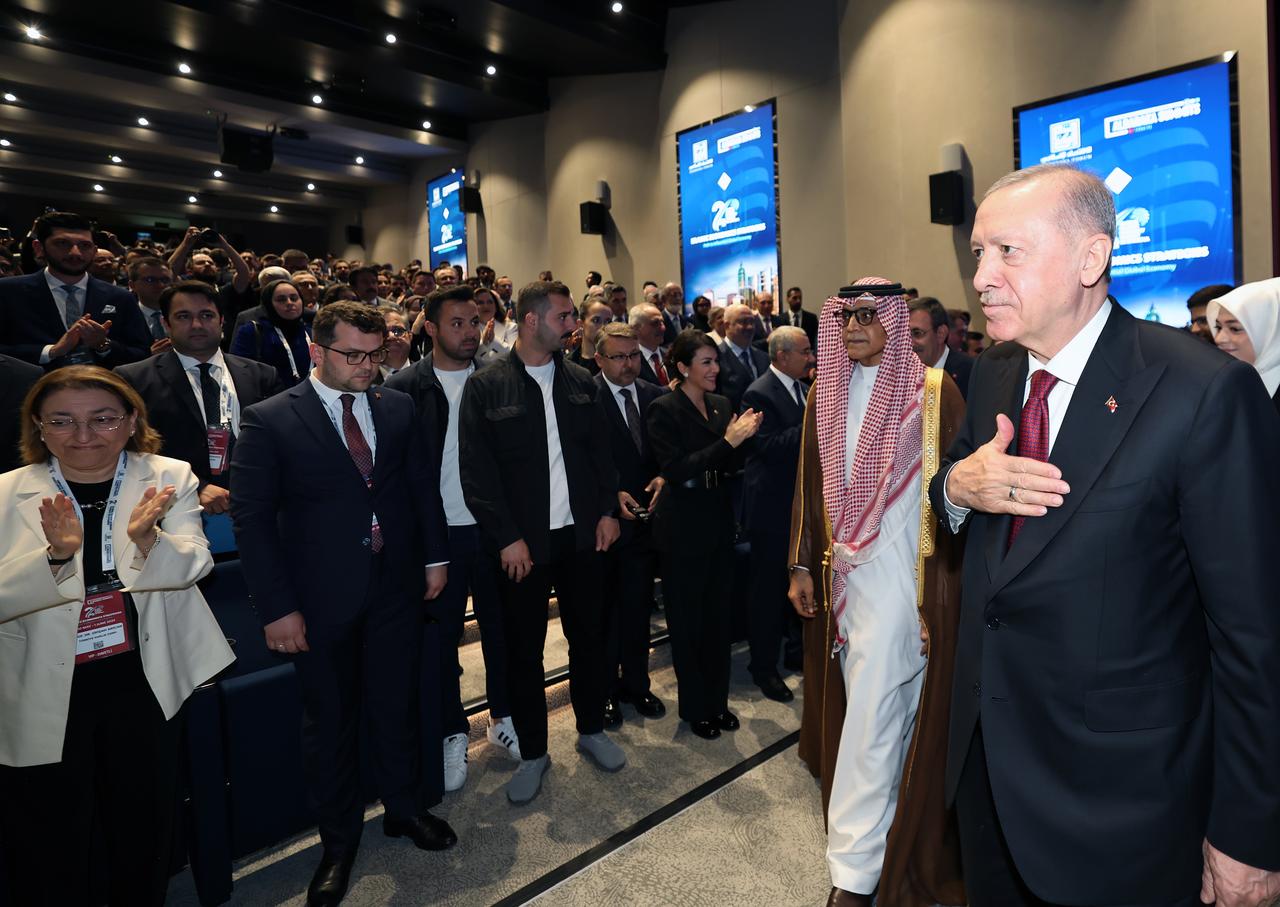
In his opening address, President Erdogan pointed to a significant imbalance between the size of the Muslim population and its share in global economic activity. He noted that while Muslims make up roughly 25% of the world’s population, their contribution to global trade and the global economy stands at only 11% and 9%, respectively. He emphasized that this gap must be closed through stronger cooperation in finance, trade, and investment.
President Erdogan also underlined Türkiye’s strategic role as a bridge between cultures and economies, stressing that the country's efforts to position Istanbul as a global financial center are opening new opportunities for the broader Islamic economy. He argued that ethical and sustainable financial practices rooted in Islamic economic principles are gaining global relevance amid widespread uncertainty.
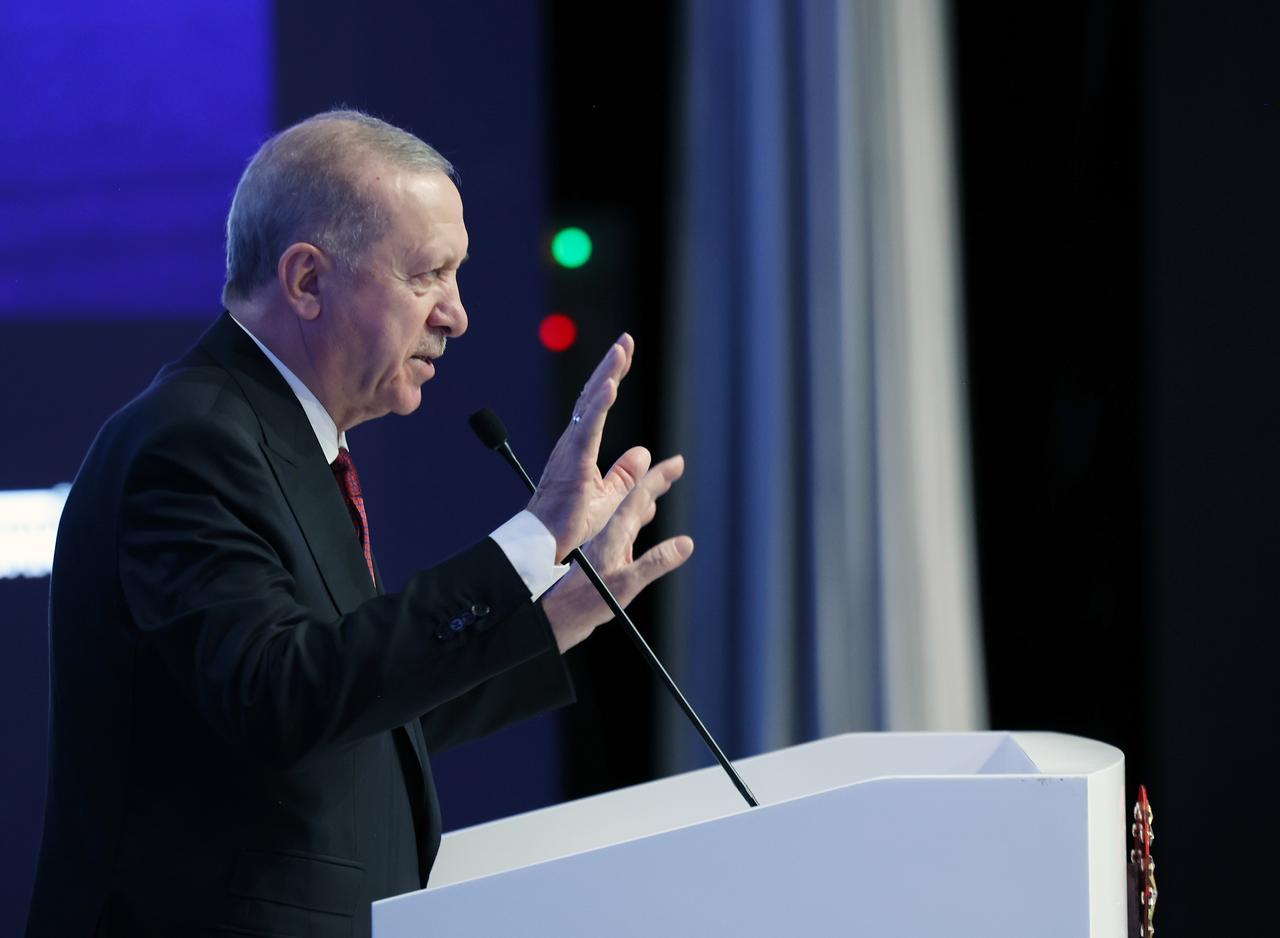
Hosted by Halkbank, the summit was held in strategic partnership with the Investment and Finance Office of the Presidency of the Republic of Türkiye, Türkiye Wealth Fund, Islamic Cooperation Youth Forum, Ibn Haldun University, Istanbul Financial Center, and AlBaraka Group. Key participants included Minister of Treasury and Finance Mehmet Simsek, Central Bank Governor Dr. Fatih Karahan, and UN Special Envoy for Sustainable Development Financing Dr. Mahmoud Mohieldin.
Abdullah Saleh Kamel, chairman of the AlBaraka Forum for Islamic Economy, described the summit as a timely opportunity for emerging markets to take an active role in shaping the future of the global economy. He reaffirmed the relevance of Islamic economics as a model grounded in ethics, innovation, and shared prosperity and called for actionable frameworks that foster financial inclusion and resilience.
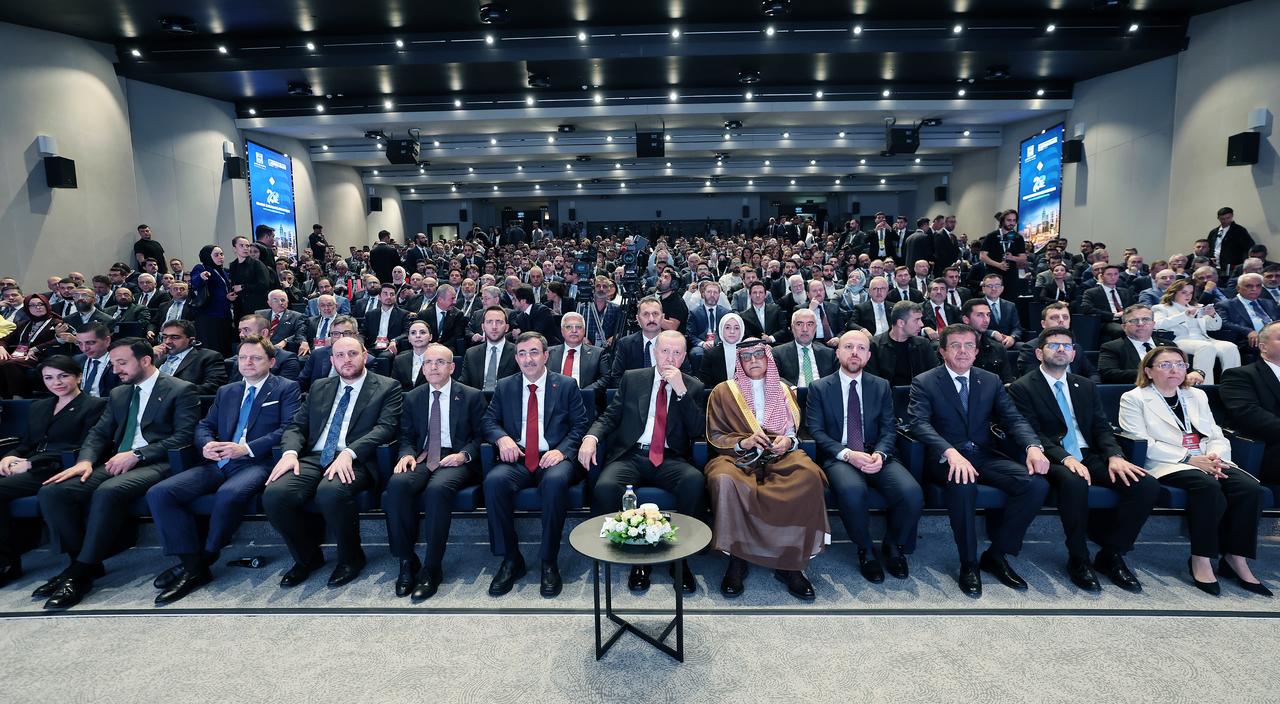
Minister Simsek acknowledged growing interest in Islamic finance, noting that despite its rapid expansion, it still represents just over 1% of the global financial market. He called for proactive efforts to scale its reach, especially given ongoing volatility in global trade and economic policy.
U.N. representative Dr. Mohieldin emphasized the compatibility of Islamic financial principles with sustainable development goals. He pointed to values such as justice, transparency, and risk-sharing as essential for tackling issues like debt stress and financial fragmentation. He encouraged deeper cooperation among Islamic countries ahead of the upcoming Financing for Development conference.
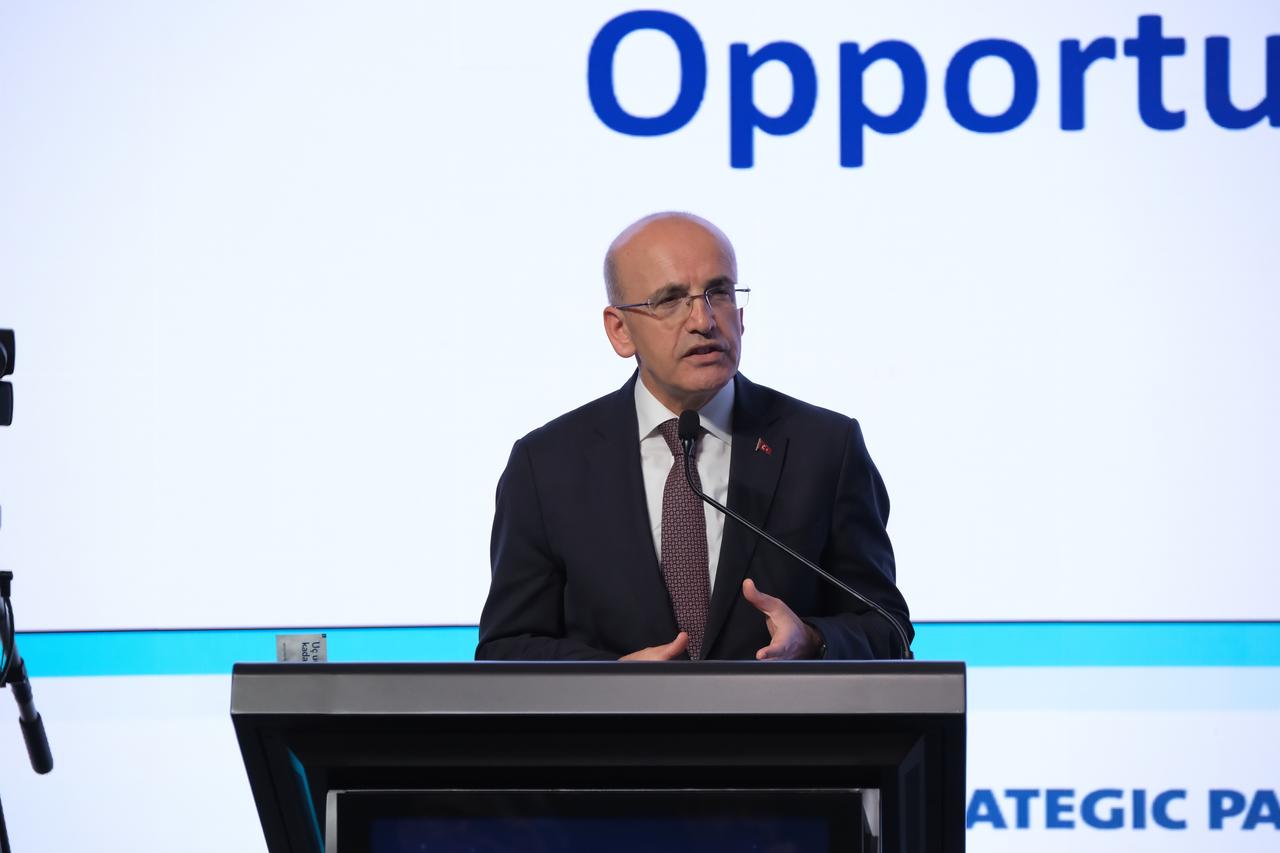
A major milestone of the summit was the launch of the AlBaraka Islamic ESG Index, created in partnership with Spectreco. The index merges ethical investment standards with environmental, social, and governance (ESG) metrics through an AI-powered platform offering real-time auditing and institutional transparency. It enables banks, asset managers, and capital markets to develop investment portfolios aligned with ethical and performance standards.
The event also featured the premiere of a documentary film, “Glimpses of Islamic Banking: From Origins to Contemporary Reality,” which traced the evolution of Islamic finance over five decades and highlighted Türkiye’s growing influence in the field.
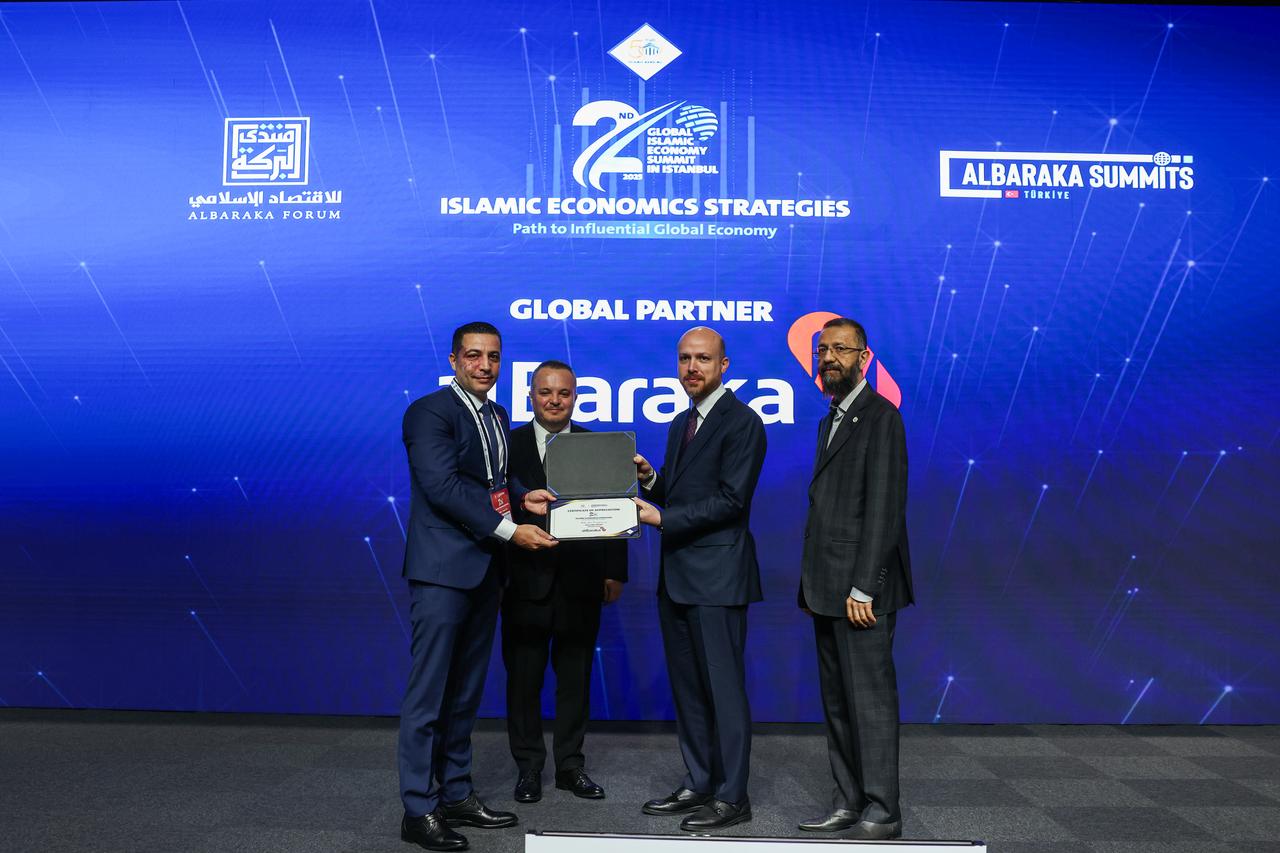
Yousef Hassan Khalawi, secretary-general of the AlBaraka Forum, reiterated the group’s mission to chart new directions for the global economy. He unveiled their new Sustainability Index during the morning session and highlighted the importance of collaboration across cities such as Istanbul, Medina, and London in advancing this vision.
Bilal Erdogan, vice chairman of Ibn Haldun University’s Board of Trustees, described Türkiye as a stable and secure platform in a time of global volatility. He noted that while Türkiye plays an increasingly active role in Islamic finance, a significant information gap remains. He emphasized the role of education, youth programs, and academic collaboration in overcoming this challenge.
The summit also saw the signing of a memorandum of understanding between the AlBaraka Forum and Halkbank, as well as an exchange of symbolic gifts between President Erdogan and Abdullah Saleh Kamel.
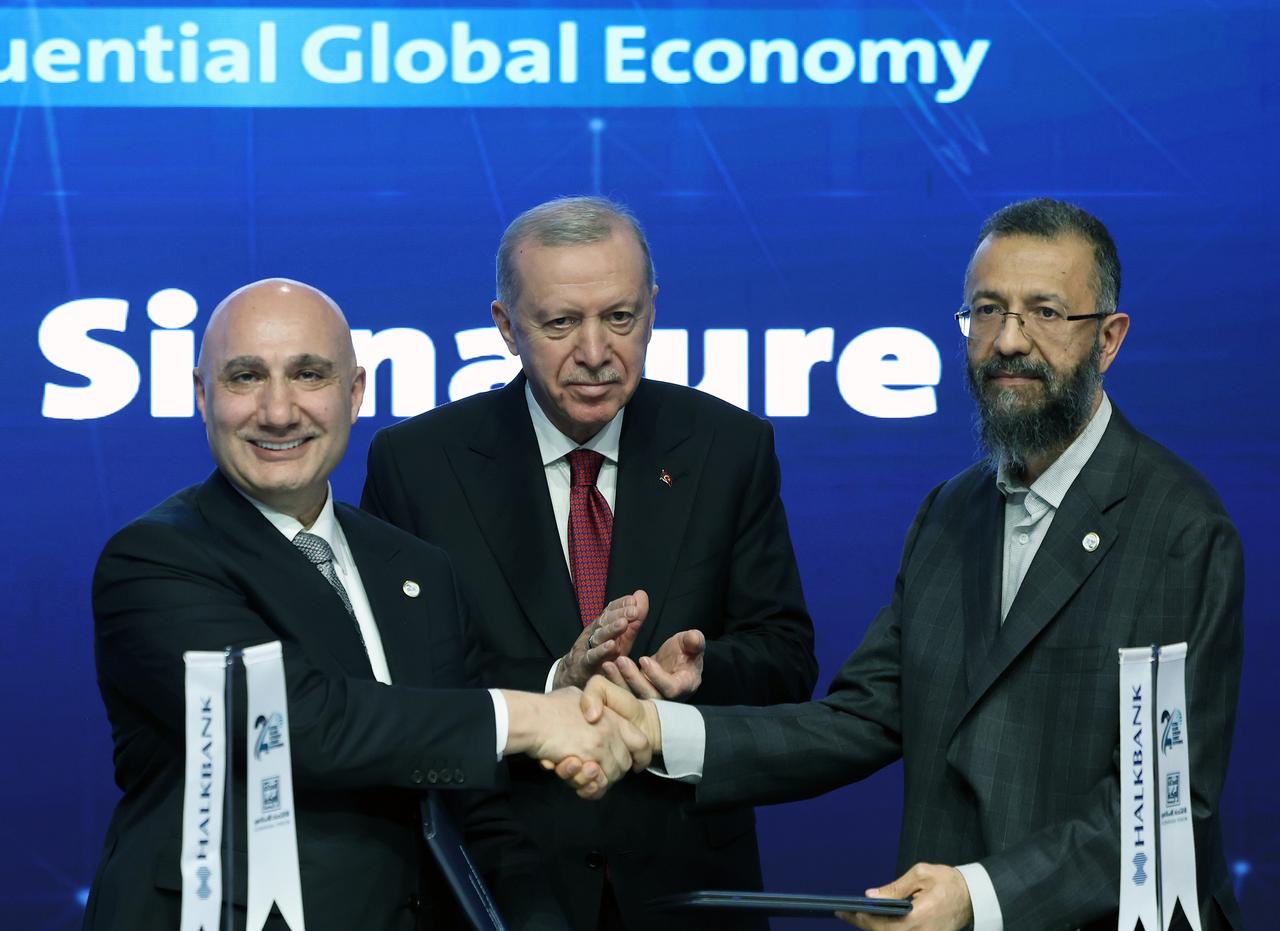
Sponsors and partners included Türkiye Katilim Sigorta, Sipay, Emlak Katilim, Takasbank, Yildiz Holding, Ziraat Katilim Bank, Colendi, and Ayhan Hukuk, with Turkish Airlines serving as the official carrier and Iqraa as the media partner.